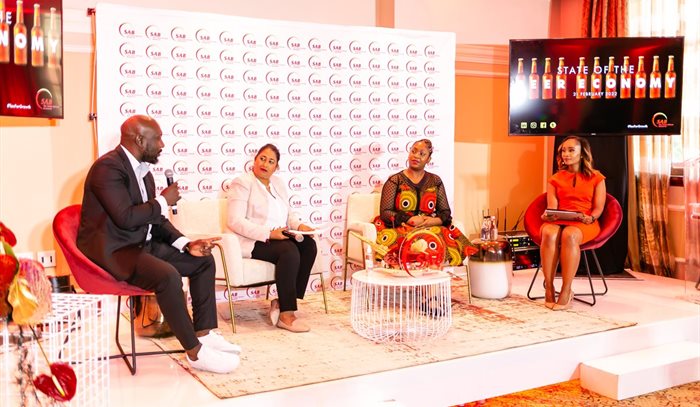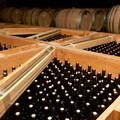South Africa's beer industry is calling for an excise tax increase in line with inflation or lower, to help it recover from the Covid-19 crisis and related restrictions and allow the industry to contribute more significantly to the country's economic growth story following the pandemic.

Source: Supplied
The industry is also requesting a 0% or below inflation excise increase for SMMEs, particularly as 30% of the country’s craft brewers were forced to close their doors as a result of the pandemic.
To amplify these calls ahead of Finance Minister Enoch Godongwana’s maiden Budget Speech, South African Breweries (SAB) hosted a media briefing this week under the theme #TaxForGrowth. Joined by industry organisations Beer Association of South Africa (Basa) and the National Liquor Traders Council, the event served to quantify the positive economic contribution of the beer value chain and highlight concerns around what an above-inflation increase could mean for the industry.
Sphe Vundla, corporate brand director at SAB, opened the event by illustrating the role the beer industry plays in the South African economy. “As one the largest brewers in Africa, SAB has a critical role in resuscitating the beer industry and supporting the country’s economic growth ambitions."
“Of significance to us is quantifying the impact that beer has on the economy, and advocating for those in our value chain, especially the SMMEs whose livelihoods have been directly impacted throughout the pandemic and lockdown restrictions placed on them.”
Dampening investment appetite
As excise is a significant input cost in beer manufacturing, comprising up to 40% of production costs, SAB economist Fatsani Banda said, “Excise taxes drive up the price of beer. It makes it difficult to run a competitive business, cover our costs and have a viable business model.”
SAB currently procures 100% of its raw materials locally. But this could change if Godongwana announces an above-inflation excise increase, akin to last year’s 8% hike, which was described at the time as "a kick in the teeth for everybody in the beer value chain”.
Fatseni said SAB would be forced to question whether South Africa is creating a business environment conducive to investment and job creation, and would likely need to diversity its costs by importing cheaper raw materials instead of procuring them locally. Another option for SAB would be to shift investments to other African countries, such as Mozambique, that have less red tape and taxation policies that serve the company better.
“We are for tax compliance. We are not public policy interventionists. We are the private sector and we want to increase jobs and investment in the country,” Fatseni said.
Patricia Pillay, CEO of Basa, commented that an excessive excise hike could spell the decimation of the country’s craft beer industry, which was hardest hit by the pandemic and the 160 trading days lost as a result of lockdown restrictions.“Minister, if you can afford it, give us a concession. It will take us two to three years to recover,” she pleaded, while pointing out that the beer industry received no relief from the government during the pandemic.
Pillay explained that craft brewers make just 4% profit margin on products after factoring in production and distribution costs, with excise claiming at least 22% of costs.
Fuelling illicit trade
While excise hikes will raise the price of beer, Pillay said people won’t stop drinking, but will simply trade down to the growing illicit market. She added that struggling businesses will simply need to shut down, thereby growing the country’s unemployment rate and the number of desperate citizens possibly resorting to a life of crime.
Expanding on the point of illicit trade, Fatseni said that government should not consider excise taxes a panacea, because the unintended consequence of excessive hikes is the fuelling of the illicit economy. “It puts a burden on the legal alcohol market because we have to compete with illicit traders who sell at lower prices.”
Dr Azar Jammine, director and chief economist of Econometrix, who also formed part of the panel, commented, “The more excise is raised, the less excise government collects because of illicit trade.”
Alleviate burden on SMMEs
According to Jammine, the government can afford to give small businesses specifically a tax break, as they only contribute a maximum of R100m in excise - a minuscule dent in revenue for the state but one that has far-reaching implications for SMMEs. “Alleviate the burden on small businesses to enable them to thrive and create employment,” Jammine said.
Lucky Ntimane, convenor of the National Liquor Traders Council, which represents independent traders and taverns in SA townships, said these businesses are still struggling.
He explained that due to excess stock that couldn’t be sold or transported during the alcohol bans, traders became targets of theft, and despite having no cashflow, were forced to spend money on security to protect stock.
Commenting on what an above-inflation hike would mean for these businesses, Ntimane said, “It will erode profitability at a tavern level. We’ll have to raise our prices which will fuel illicit trade and allow illegal traders to thrive.”
He added, “The Minister of Finance recently requested public guidance regarding budget priorities for the following fiscal. We would suggest that he take heed of our president’s vision to support SMMEs by budgeting for reduced, or perhaps withdrawn, excise duty for the industries hardest hit by the pandemic.”
Significant job creator
While the alcohol industry is often considered a “sin industry” hence the term “sin taxes”, the panelists highlighted the positive role beer plays in the country. The local alcohol industry supports approximately 1 million livelihoods and contributes approximately R173bn at market prices to GDP, including the payment of R72bn to the fiscus in indirect taxes alone.
The beer industry alone supports about 250,000 jobs across its beer value chain, and Fatseni and Pillay both highlighted the industry’s role as a significant supporter and customer for SA agriculture.
“I’m not fighting for alcohol; I’m fighting for livelihoods. Why are we penalising industries that support South African agriculture?”
Harmful drinking
As one of the main functions of excise duties is to discourage the consumption of harmful products, Basa is of the view that there needs to be a distinction between beer as an alcohol beverage with a low ABV of 2.8 to 6% alcohol versus other alcoholic beverages with higher ABVs.
“Currently we don’t get any advantage for having a lower ABV. If we’re trying to encourage moderation, the beer industry should be incentivised for having a lower ABV,” Pillay said.
According to Fatseni, the government should not be relying solely on excise taxes to hinder harmful alcohol consumption and said that an excise increase in line with inflation or below would allow the brewer to mobilise further resources to combat the scourge.
“SAB is in the business of collaborating with government to address harmful drinking, but there are other levers to manipulate beside prices,” she said.
Jammine weighed in and said that while excise taxes are used to encourage people to drink less alcohol and smoke fewer cigarettes, and to generate revenue for the state, the government must find a balance that dissuades people from harmful consumption while not destroying economic activity.
Fatseni closed off urging the government: “Tax in line with inflation to grow jobs and investment.”








































